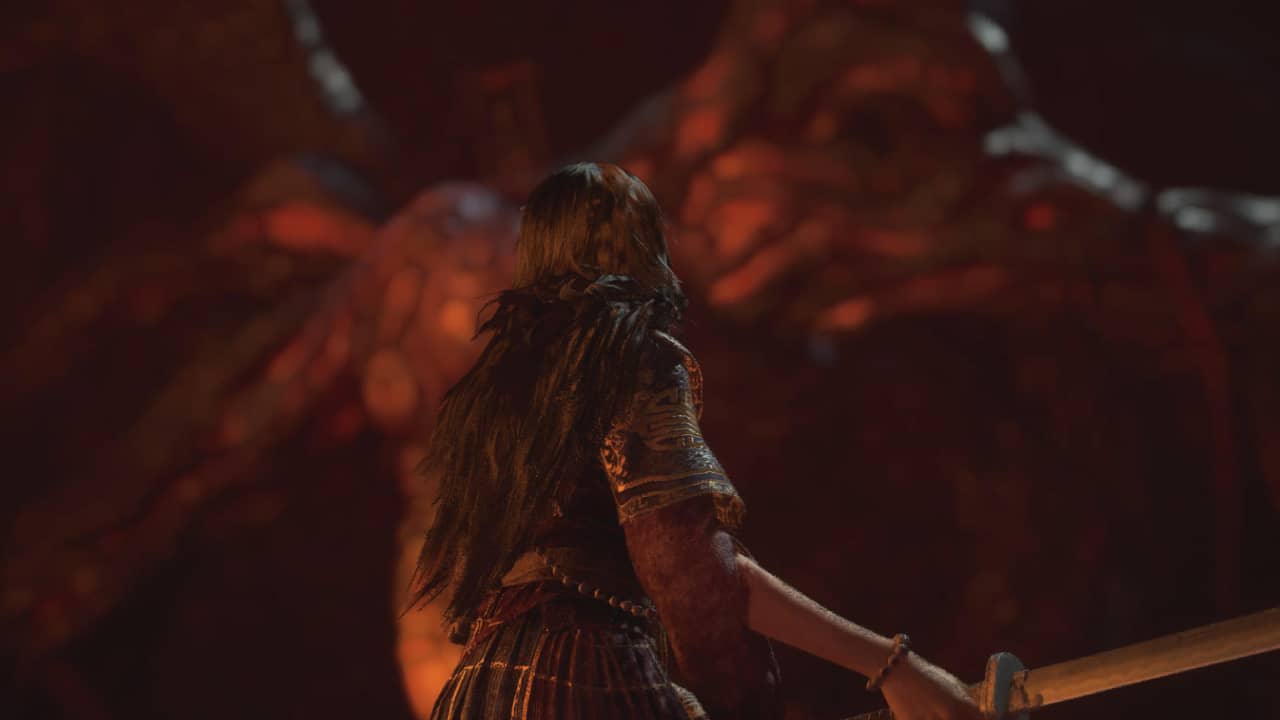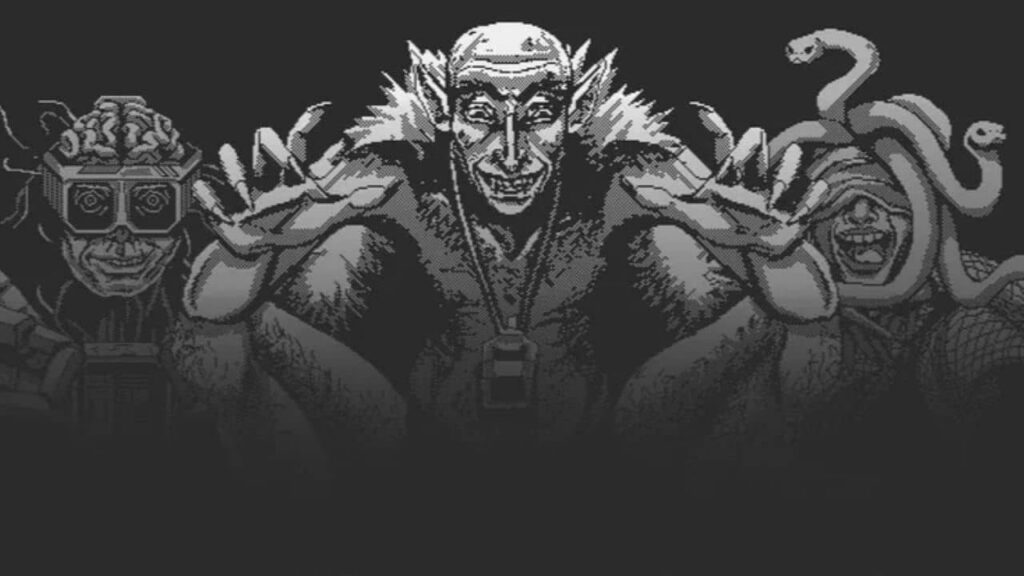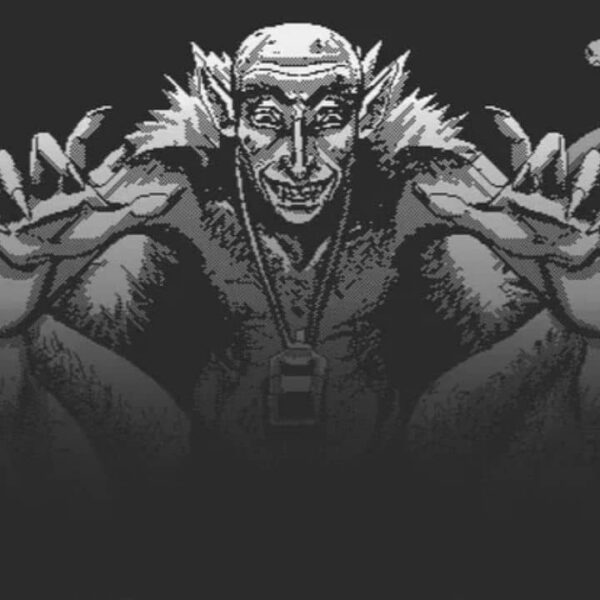Wuchang: Fallen Feathers Buy this game. Buy this game if you enjoy Souls-likes and aren’t prone to rage quitting. Don’t buy this game if you have a PC or Xbox and have Game Pass, as it’ll be available on launch for ‘free’. That said, it’s for a limited period, so suggest you still buy the game. And no, Leenzee and 505 Games have not put me up to this. I’ve enjoyed it immensely (and at times despised it) these past few weeks, taking up approximately 80% of my gaming time. This Wuchang: Fallen Feathers review is based on a PS5 review code, but wholeheartedly would purchase this without fail.
The game isn’t going to change your life, and it’s not necessarily GOTY, but the levels of adrenaline that emanate from every pore make it so worthwhile. The setup is this: you’re Bai Wuchang, a pirate who wakes with selective amnesia during the late Ming dynasty in a land called Shu. The area is suffering from war and an ominous plague called feathering, which is neither a Photoshop tool nor involves a classic prank involving tar. From this point, either I’ll continue to detail what everybody else says or can be read from a synopsis, or I can give a breakdown of what feathering is. The latter would be mostly fabricated, as I still don’t quite get it, but that didn’t spoil the fun.
Wuchang: Fallen Feathers is a third-person Souls-like that is Elden Ring meets Sekiro meets Nioh meets Xuan-Yuan Sword. After gawping at the cutscenes and stunning real-life vistas, it quickly becomes apparent that there’s a certain overlay here. Bonfires, light attacks, heavy attacks, replenishable flasks, weapon sets and armour, shortcuts unlocked when beating a boss, souls to level up stats that deplete upon death, hard-as-nails bosses, and a fair amount of enemy patterns to decipher and master.
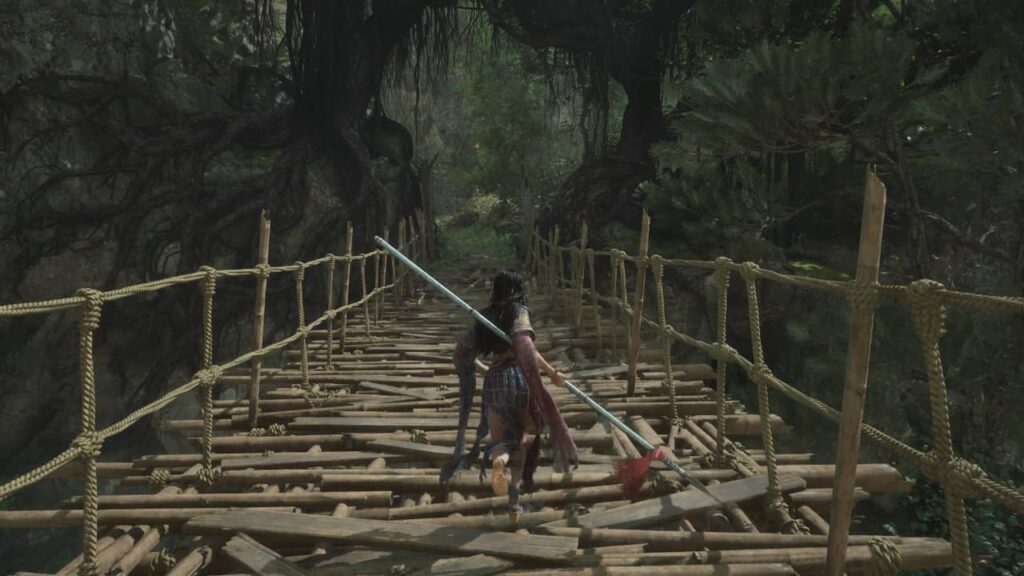
HOWEVER… Wuchang: Fallen Feathers turns things on its head without completely redifining the genre, but invigorating it. The first thing you’ll notice is the lack of ambiguity in dialogue. Unlike the Dark Souls series, the villagers don’t speak in riddles, and the hardest thing to decipher is the Chinese pronunciations. As a purist, I always play a game in the native language, but there’s so much going on here that I had to have it in English as there was no time to read.
There are a variety of base weapons, but not as excessive as the Nioh series. There’s the axe/halberd, dual swords, one-handed sword, two-handed sword and the spear, and each one has a defined skill tree through what is called the Impectus Repository, accessible through shrines, and red mercury (souls) that upgrade them. Investing in individual weapons allows for mastery and additional damage, but the core statistics apply to all weapons and abilities.
Vitality, Endurance, Strength and Agility are self-explanatory and improve specific weapons, ie, strength boosts axes, agility for dual swords and spears, though not limited to. Magic is also obvious, and affects the spells cast, but not so much the Feathering. But there are a couple of other tricks involved. The first is Temperance, which allows Wuchang to use acupuncture to unlock an elemental skill for her weapon, such as fire or paralysis. It’s massively powerful, but a consumable that manually has to be activated. The second is Madness. Each time you kill an enemy or die, your Madness increases, and this boosts damage dealt as well as received. It also unleashes your Inner Demon.
The Inner Demon works on two levels. First, it punishes players who keep dying, or those who farm areas repeatedly, as a demonic version of yourself, with all your stats, will appear and attack you. If you die, you lose all your red mercury, though you retain it and potentially unlock a new Temperance skill if you beat her. The second way this mechanic works is that the Inner Demon will attack ANYTHING. You can effectively lead her through an area and she’ll often shred everything. Alas, you can’t cheese bosses. She can’t pass the mist to access them. Believe me, I tried. With this mechanic, and skimming over the boss battles, you can use the demon to your advantage as it’ll boost stats and the volume of red mercury available, at the risk of a more challenging environment. Not that you need that as Wuchang: Fallen Feathers is stupidly hard.
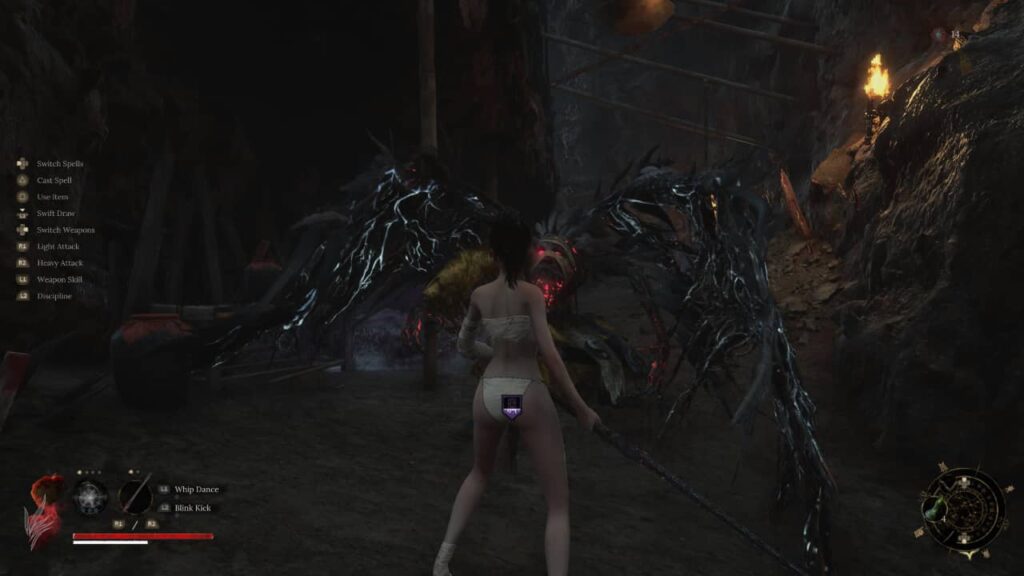
While Wuchang: Fallen Feathers states that it is a non-linear experience, it’s more on a straight and narrow path as you typically have to beat a boss to move to the next area, and aside from farming for a higher level, there’s not much to do. However, the balancing is brilliant. When you encounter the first boss, you’ll think you’ve wasted your money as there’s no way you’ll do it on your own, then after learning the patterns and tinkering with your loadout, it becomes manageable… until the next boss. Bizarrely, the bosses got easier in my experience. Possibly this was from levelling up, but also through efficient management of the Impectus Repository.
Unlike Dark Souls or Nioh, you don’t need an item or currency to respec at any point in the game! This is an absolute game changer, with the only stipulation being that you need to go to a shrine to access the repository. Irrespective of your level, you can respec all your points from one weapon to another, invest in Temperance, Magic, Feathering, or focus on the in-game combo system known as Skyborn Might, which significantly boosts attacks and awards magic when evading and clashing with an enemy with perfect timing. The terminology in Wuchang: Fallen Feathers is unnecessarily complex, and the in-game help doesn’t do much to alleviate that.
Nevertheless, I was confidently playing Wuchang: Fallen Feathers with a two-handed sword up to one boss, switched to an axe for another boss, then a spear for the majority, and then completely started afresh with a one-handed sword and magic to face a human opponent. The possibilities for encounters are truly endless, and having that freedom to experiment is one of the best things about the game: without restriction, and not being locked to a specific build. I will be frequenting FextraLife once the game is released for some build suggestions, however.
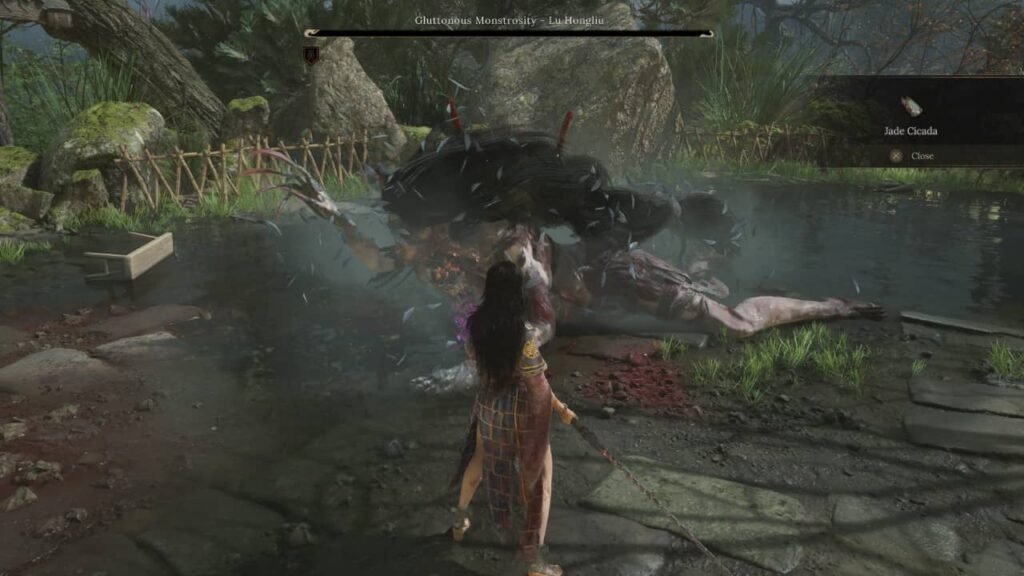
On the downside, there is a summoning feature where an NPC joins in one boss battle, but it is unavailable through the rest of the game. The tutorial says that completing quests will unlock a summon (played through a pipe), but this never happened. And, as mentioned, you can’t manipulate the Inner Demon to do your bidding in a boss battle, making it quite the learning curve. As with Bloodborne, I found the human bosses far more difficult to deal with than the mythic behemoths.
The other minor negative was the screen tearing. The console version of Wuchang: Fallen Feathers, specifically the PS5 edition, offers multiple options for locking the frame rate, prioritising FPS over graphics, and a particularly cool sharpening feature. However, with all these options enabled, screen tearing was rampant. I seldom comment on technical aspects, so it was clearly commonplace. That said, there was no slowdown and any timing issues were down to me and me alone. It has provided enough evidence for me to convince the missus that we need a new OLED TV, and size does matter. Watch this space. Aside from that, those are my only quibbles with Wuchang: Fallen Feathers, and they’re incredibly minor.
Yes, the boss battles can be relentless and unforgiving, but they are doable. Yes, enemies often hit you when you hit the deck when you are unable to move, and this will result in a loss of red mercury and the Inner Demon showing up. However, this is all part of the charm of a Souls-like, and this game nails it. Bearing in mind I haven’t played Black Myth: Wukong, Wuchang: Fallen Feathers is the best Souls-like since Elden Ring and Nioh. It’s an essential purchase for Souls-like nerds and the respec option is well worth the admission price alone. Seriously, get this.

